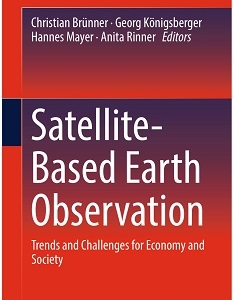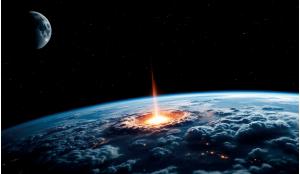The term ‘Satellite-based Earth Observation’ (SEO) describes a procedure whereby information related to the Earth is collected through in-orbit remote-sensing. SEO constitutes a real breakthrough in terms of Earth observation and is of particular importance to our daily life, as it allows, among other things, improved climate predictions, early warnings with respect to extreme weather conditions and natural disasters as well as reliable detection of energy reserves on Earth. In view of all this, satellite observation is not only a versatile activity, but also constitutes a flourishing industry.
The origins of Earth observation through satellites can be traced back to the 1970s with the inauguration of the Landsat programme, which marked the transition from military uses of satellite optical recognition to civil applications. Successive endeavours in this field finally resulted in the European Earth observation programme Copernicus, capable of providing critical information in a series of crucial areas such as: atmospheric composition, ocean and marine ecosystems, land cover and use, vegetation state, water cycle, earth surface energy variables, present and future climate, natural disasters, humanitarian crises and important security issues (border and maritime surveillance).
A thorough academic contribution to satellite Earth observation is therefore more than welcome.
Satellite-Based Earth Observation: Trends and Challenges for Economy and Society, edited by Christian Brünner, Georg Königsberger, Hannnes Mayer and Anita Rinner reflects to a large extent the proceedings of a 2017 symposium on Trends and Challenges of Satellite Based Earth Observation for Economy and Society, held at the Styrian Economic Chamber in Graz, Austria.
What really impresses in this book is its multidimensional character, as satellite-based Earth observation is explored in its legal, strategic, technical and economic aspects, while at the same time the broad range of SEO applications is clearly highlighted. Thus, a great number of sectors is explored: agriculture, Alpine forest monitoring, public administrations, self-driving vehicles, urban planning and management, civil aviation. As a lawyer, I found the developments in the legal section of the book (Part IV) extremely interesting. The thematic approach is particularly rich and original in this section, giving rise to a thought-provoking and thorough legal debate, particularly with respect to such issues as the legal aspects of collection and utilisation of Earth observation data; a regulatory framework applicable to small satellites and Mega Constellations, taking into consideration the relevant role of the International Telecommunication Union (ITU); or the limits of GPS applications with respect to the rights of employees. The respective analyses emerge from both international and national space law, with an emphasis on the relevant European action (INSPIRE Directive, Copernicus).
This book constitutes a successful effort to address the most important questions with respect to SEO. The approach is detailed and multidimensional, in such a way that this publication offers a valuable aid not only for the technical and legal expert but also for those involved in the decision-making process, both at the private and public level.
George D. Kyriakopoulos
Assistant Professor of International Law, Faculty of Law, National and Kapodistrian University of Athens, Greece
Visiting Professor, Institute and Centre of Air and Space Law, Faculty of Law, McGill University, Montreal, Canada











